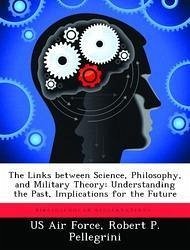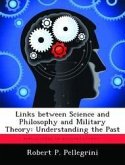This study examines the links between science, philosophy, and military theory. The author uses two case studies to demonstrate the links between these disciplines. He presents an overview on the rise of Newtonian science, and he examines how the key frameworks and concepts of that science became interwoven into Western civilization to affect its philosophy with an emphasis on its interpretation by the German Romanticist philosopher Immanuel Kant. He then shows how Newtonian science and Kant's philosophy affected the military theory of Carl von Clausewitz. His second case study concerns the theory and philosophy of evolution developed by British philosopher Herbert Spencer and its influence on the military theory of J. F. C. Fuller. The author compares these two case studies to find commonalities between them that suggest a mechanism which explains how and why scientific theory and their philosophical interpretations eventually influence military theory. The author then uses this mechanism as a tool with which "new" sciences such as quantum mechanics, relativity, and complexity theory can be evaluated to see if and in what manner they will affect future military theories. The main concept of this mechanism is that science and philosophy, both consciously and unconsciously, provide frameworks for investigation and systems of knowledge for the military theorist. Finally, this study suggests that new definitions of the concepts of force, space, time, and knowledge will have an influence on future military theory. The shift from the Newtonian framework of cause and effect determinism to the new science concept of probabilities and trends-as well as the shift from the force of heavy mechanics to the new particle wave theories of force-will change man's concept of the battlefield, emphasizing the capability for rapid observation and action.








